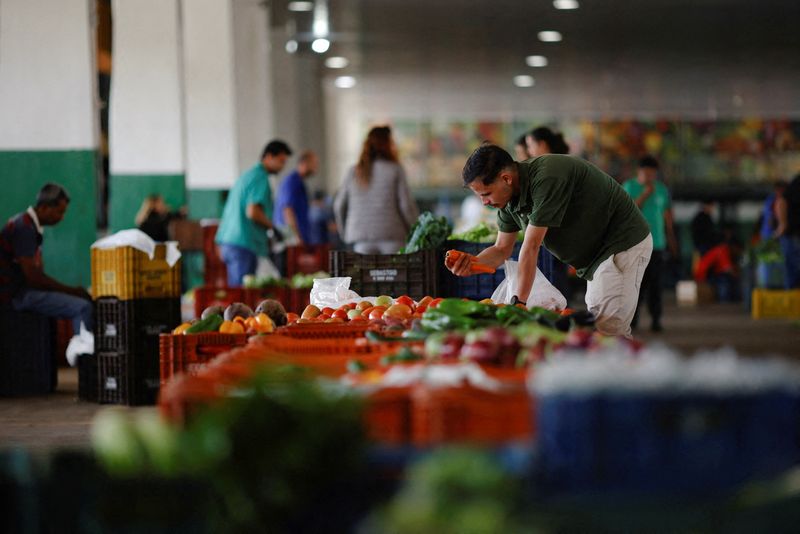By Gabriel Burin
(Reuters) – Brazil’s consumer price index is forecast to have dropped 0.15% in August against July thanks to a special discount in electricity bills and benign trends in food costs, a Reuters poll showed.
While potential headline deflation could support expectations of monetary policy easing ahead, some components probably remained sticky, warranting more central bank caution.
The IPCA consumer price index likely fell 0.15% last month over July, according to the median estimate of 22 economists polled September 3-8. Official data is due on Wednesday.
Technical deflation was last seen in August 2024, with a marginal 0.02% fall. Before that, the IPCA had receded 0.08% in June 2023.
On a 12-month basis, August inflation is forecast at 5.09%, which would be the slowest rate since 5.06% in February but still above the central bank’s target of 3% plus a tolerance margin of 1.5 percentage points.
Electricity costs declined sharply last month due to a one-off discount related to hydroelectric dam Itaipu’s results, as reported previously in official mid-month data.
“August inflation was marked by the decline in food prices… (and) well-behaved industrial prices,” said Fernanda Guardado, Latin America chief economist at BNP Paribas.
Cost pressures in both sectors have calmed this year as a result of the strong appreciation of Brazil’s real currency after a spell of volatility at the end of 2024.
“The impact from the bonus of Itaipu, which led to a decline in electricity fares, also pushed the number into negative territory, and is expected to subside by the turn of the month,” Guardado said.
“Meanwhile, services inflation continues to run well above target, around 6% annual rate,” she added, citing a component whose stickiness has been a matter of concern for Banco Central do Brasil (BCB).
This is generally attributed to a resilient labor market. In the three months through June, Brazil’s jobless rate fell to the lowest level for the current data series from 2012.
Additionally, slow convergence of expectations towards BCB’s target has been another main reason behind its strict policy stance.
The central bank last month held the benchmark Selic rate steady at 15% after a 450 basis-point tightening campaign launched a year ago.
Most analysts predict it will kick off an easing cycle in the near future, but weaker-than-forecast disinflation has pushed back the expected start of rate cuts to next year from the second half of 2025.
(Reporting and polling by Gabriel Burin; Editing by Alexandra Hudson)

